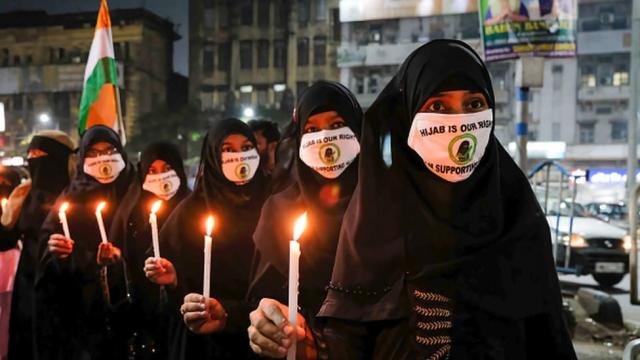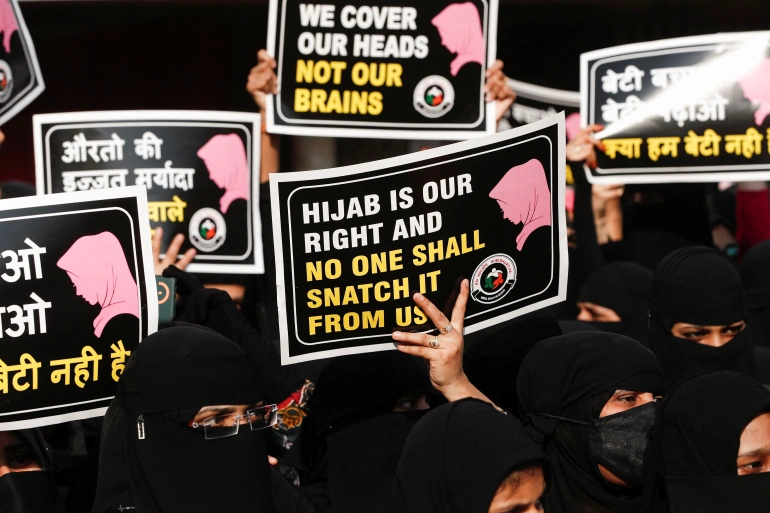The matter arises from a ban in BJP-ruled Karnataka state that forbids students from wearing the headscarves in classrooms.
A panel of India’s top court says it is divided on a decision to allow hijabs in classrooms and referred the matter to the chief justice, who will set up a larger bench to hear the case.
This arises from a ban in February by the southern state of Karnataka that forbade students to wear headscarves in classrooms, which unleashed protests by Muslim students and their parents, as well as counter-protests by Hindu students.
“We have divergence of opinion,” said Justice Hemant Gupta, one of the two panel judges, as he delivered Thursday’s decision, but the judges did not say when the larger bench would be set up, or when the next hearing would be held.
“It is ultimately a matter of choice,” said the other judge, Justice Sudhanshu Dhulia, as he set aside the Karnataka High Court order.
Muslims are a sizeable minority in India, accounting for 14 percent of the country’s 1.4 billion population in the South Asian nation where Hindus make up the majority. Although this statistic may not be very accurate, but does it justify the fact to ban a percentage of your community whom mainly the women of this population are being targeted, from their rights?

Following these occurrences, some Muslim students challenged in the Supreme Court a ruling by a state court that upheld the ban in March.
“It is a split verdict. The case has not ended. The matter has been referred to the chief justice who will constitute a larger bench. This is progress from what we got from the Karnataka High Court,” Anas Tanwir, a lawyer representing the Muslim girls said to a source.
The issue of the hijab ban started when female Muslim students wearing hijab were barred in January this year from entering their classrooms at a government college in Karnataka’s Udupi district. Subsequently, more educational institutions across the state banned Muslim girls from wearing the headscarves.
The students approached the Karnataka High Court on March 15, which upheld the ban and ruled that “The wearing of hijab by Muslim women does not form a part of essential religious practice in the Islamic faith”. The students then approached the Supreme Court, challenging the lower court’s verdict.
Critics of the hijab ban say it is another way of marginalizing a community, and that Prime Minister Narendra Modi’s Bharatiya Janata Party (BJP), which rules Karnataka, could benefit from the polarization.
Now, this news went viral on social media; and for 24 hours the hashtag #hijab trended on twitter.
Source: Al-Jazeera

